Sandra and Em talk about how the cognitive function of Extraverted Feeling (nicknamed Relational Feeling) shows up in kids. This function is used by kids who have ESFJ, ENFJ, ISFJ and INFJ preferences in the Myers-Briggs personality type model.
Links and references:
Find Your Child’s Myers-Briggs Type
Myers-Briggs Basics
Cognitive Function Cheat Sheet
Check out my podcast page for episodes broken down by topic.
Enlist Sandra’s services to create a more peaceful dynamic in your family!
Email us at familypersonalitiespod@gmail.com
Follow us on Instagram @FamilyPersonalities
Follow us on Facebook @FamilyPersonalities
Leave us a review on iTunes/Apple Podcasts
Rate, Review, Subscribe, Share
Full show notes:
Overview of Relational Feeling
- An Extraverted function: deals with the outer world
- A Judging function: deals with how make decisions
- Relational Feeling kids: pay attention to the collective needs of the group in order to build relationships and decide in a connected way.
In adults (episode 90) we talked about this function having 4 facets:
- Build Relationships: Use communication to be supportive and keep or protect the interpersonal bond
- Attuning to Others: Pay attention to how others around them are feeling and what they need
- Value Interpersonal Harmony: Adjust their behavior to attend to whatever needs to be done to create interpersonal peace and meet others needs
- Focused on Social Rules: Finds it desirable to have a set of rules or etiquette to follow to ensure the majority of people’s needs are met
What this looks like in kids:
(these will be true MOST of the time with ESFJ/ENFJ kids and true just some of the time for ISFJ/INFJ kids)
- Social – Place a lot of importance on their relationships with their family and friends.
- Social butterflies. Invite other kids in. Make friends easily
- Trusting of others, open to others
- Quite patient for their age.
- They tend to communicate in ways that build rapport, disclosing things about themselves to create bonds.
- Tend toward using polite and acceptable language like “thank you” and “it’s nice to meet you”
- Promote Harmony – Sensitive to conflict and want to keep the harmony.
- Likely to give up their own desires and go with what someone else wants to do in order to keep others happy.
- Tuned in to how others around them are feeling and often go out of their way to make friends, siblings or even their parents feel better
- Strong sense of ethics
- They like structure and decisiveness and gravitate toward social rules
- They don’t like to break the rules in general and feel uncomfortable when others do.
- As they grow they tend to develop a strong sense of right and wrong.
- May not express these opinions if they think speaking out loud will cause someone to be upset or to dislike them.
- Sensitive – Anger and conflict are difficult for young FJs so they will do what they need to do to avoid others’ anger
- They become embarrassed easily.
- Have a very difficult time with criticism or stern voices from parents or teachers, taking it as a personal statement on their character
- Cry frequently when their feelings are hurt. Express themselves loudly when they are upset
- They have a strong need to be liked by others, and can be very upset by rejection from a peer.
What your child needs:
- Encourage them to share their feelings, positive or negative and actively listen as they explain.
- Show them it is safe for them to share their feelings by accepting their feelings as valid, whether or not they make sense to you.
- Save the logic for when the wave of emotion has passed.
- Make an effort to sincerely and frequently express your love to them both through words and touch.
- Do not dwell on the negative when you discipline.
- Offer a lot of praise and emphasize the positive.
- Expect high energy levels in younger EFJs. Allow them plenty of opportunity to talk and converse plus plenty of social opportunities with others.
- Allow opportunities for them to be involved in a variety of activities and help them strike a balance between these activities, social time and their need for rest.
- Schedule regular one-on-one quality time to spend together.
- Encourage them to have their own opinions by modeling honesty and the value of voicing and listening to dissenting opinions.
- Praise them for speaking up, even if you disagree with their opinion.
- Encourage them to speak the truth when it’s important, even if that requires hurting others or stepping on toes.
Leave a comment: Do you have a Relational Feeling child? Do you notice these themes in your kid? Tell us about your experience and what has worked for you and what has not.
